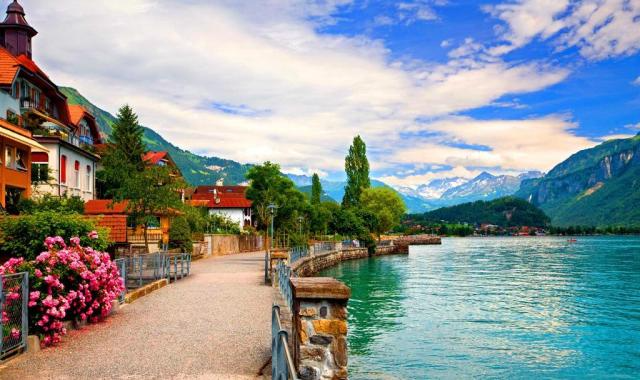
What is the Cleanest Country in the World?
Have you ever wondered which country boasts the cleanest streets, the most pristine air, and the most sparkling waters? We all crave a world where nature thrives and our environment is protected. But in a world grappling with pollution and environmental challenges, identifying the "cleanest" country is a complex endeavor.
This blog post will delve into the fascinating world of environmental cleanliness, exploring the factors that contribute to a nation's environmental health. We'll journey across the globe, examining various contenders for the title of "cleanest country in the world" and uncover the secrets behind their environmental success.
Why Does Cleanliness Matter?
A clean environment is not just aesthetically pleasing; it's crucial for human health and well-being.
Improved Air Quality: Clean air is essential for respiratory health. Reduced air pollution leads to fewer respiratory illnesses, such as asthma and bronchitis.
Reduced Water Pollution: Clean water sources are vital for human consumption, agriculture, and aquatic ecosystems.
Healthy Ecosystems: A clean environment supports thriving ecosystems, promoting biodiversity and ensuring the long-term sustainability of our planet.
Enhanced Quality of Life: Living in a clean environment contributes to a higher quality of life, with reduced stress, improved mental health, and increased opportunities for outdoor recreation.
Defining "Cleanest Country": A Multifaceted Approach
Determining the "cleanest" country is not as simple as it may seem. There's no single, universally accepted metric. Instead, we must consider a variety of factors, including:
Air Quality: Levels of particulate matter (PM2.5 and PM10), ozone, and other pollutants.
Water Quality: Cleanliness of rivers, lakes, and coastal waters; access to safe drinking water.
Waste Management: Efficiency of waste collection, recycling rates, and levels of plastic pollution.
Environmental Protection: Strength of environmental regulations, conservation efforts, and government commitment to sustainability.
Public Awareness: Public understanding and engagement in environmental issues.
Contenders for the Cleanest Country Crown
Several countries consistently rank high in environmental performance and are often considered among the cleanest in the world. Here are a few notable examples:
Switzerland: Renowned for its stunning natural beauty and commitment to environmental protection. Switzerland boasts high air quality, efficient waste management, and strong environmental regulations.
Sweden: A global leader in renewable energy and sustainable practices. Sweden has ambitious environmental goals and a strong focus on recycling and waste reduction.
Austria: Known for its pristine landscapes and commitment to environmental conservation. Austria has a strong environmental policy framework and actively promotes sustainable tourism.
New Zealand: A country blessed with breathtaking natural beauty, New Zealand prioritizes environmental protection and has a strong focus on conservation and sustainable land management.
Iceland: A land of glaciers and volcanoes, Iceland utilizes geothermal energy extensively, minimizing its carbon footprint. The country also boasts high air quality and pristine natural environments.
Factors Contributing to Environmental Success
What are the secrets behind the environmental success of these "cleanest" countries?
Strong Government Policies: Effective environmental regulations, robust enforcement mechanisms, and government investment in environmental protection play a crucial role.
Public Awareness and Engagement: Educating the public about environmental issues and fostering a sense of environmental responsibility are essential.
Technological Advancements: Utilizing innovative technologies, such as renewable energy sources and advanced waste management systems, can significantly improve environmental performance.
Sustainable Practices: Promoting sustainable consumption and production patterns, encouraging recycling, and reducing reliance on single-use plastics are key to a cleaner environment.
International Cooperation: Collaboration between countries on environmental issues, such as climate change mitigation and pollution control, is vital for global environmental health.
The Role of Individuals in Creating a Cleaner World
While government policies and technological advancements are crucial, individual actions also play a significant role in creating a cleaner world.
Reduce, Reuse, Recycle: Minimize waste generation, reuse items whenever possible, and participate in recycling programs.
Conserve Water and Energy: Reduce water consumption by fixing leaks, taking shorter showers, and watering plants efficiently. Conserve energy by using energy-efficient appliances and reducing reliance on fossil fuels.
Choose Sustainable Transportation: Walk, bike, or use public transportation whenever possible. Consider purchasing an electric or hybrid vehicle.
Support Sustainable Businesses: Choose products and services from companies that prioritize environmental sustainability.
Advocate for Change: Support environmental organizations, participate in community cleanups, and advocate for stronger environmental policies.
Conclusion
The quest for the "cleanest" country is an ongoing journey. While some countries excel in certain areas of environmental performance, there is always room for improvement. By understanding the factors that contribute to environmental success and taking individual and collective action, we can all play a part in creating a cleaner, healthier, and more sustainable future for ourselves and generations to come.
Call to Action:
What steps can you take today to make a positive impact on the environment? Share your thoughts and ideas in the comments section below. Let's work together to create a cleaner, greener world for all
